Aseo— plate 33
The Arti che vanno per via nella città di Venezia (1753, 1770, 1785, etc.), by Gaetano Zompini (1700–1778), contains sixty engravings of common, mostly poor people, peddling their trades on the streets of Venice in the mid-1700s.
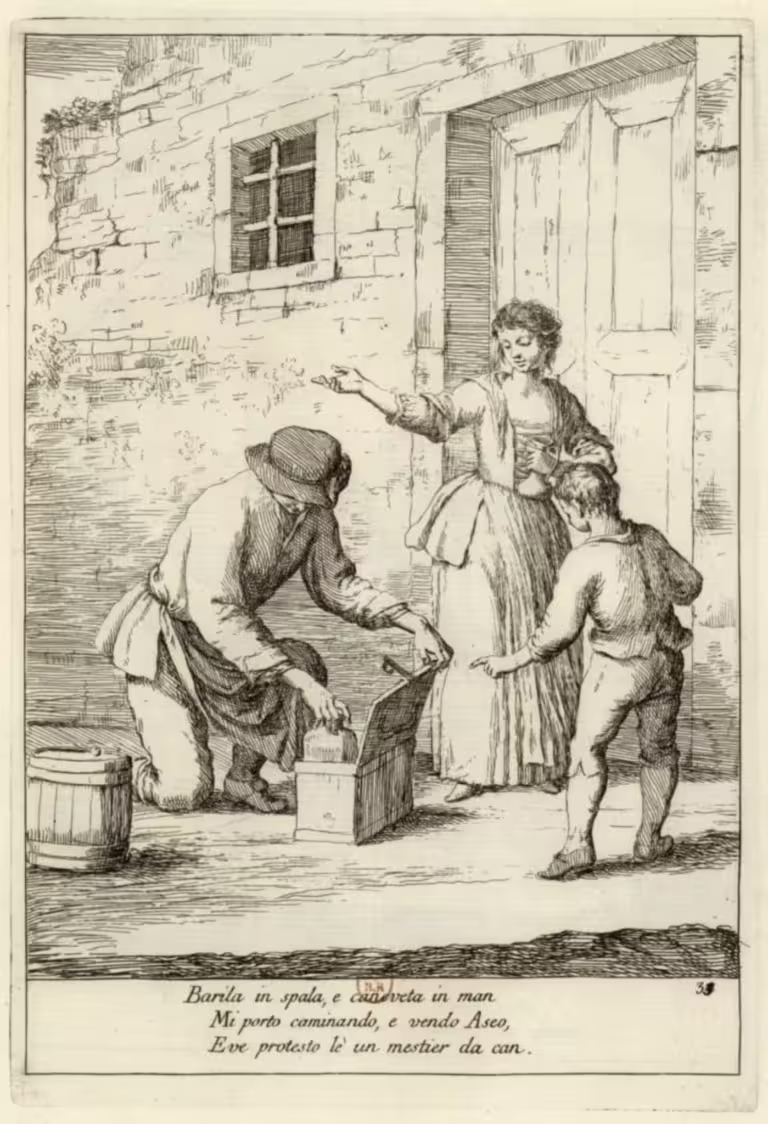
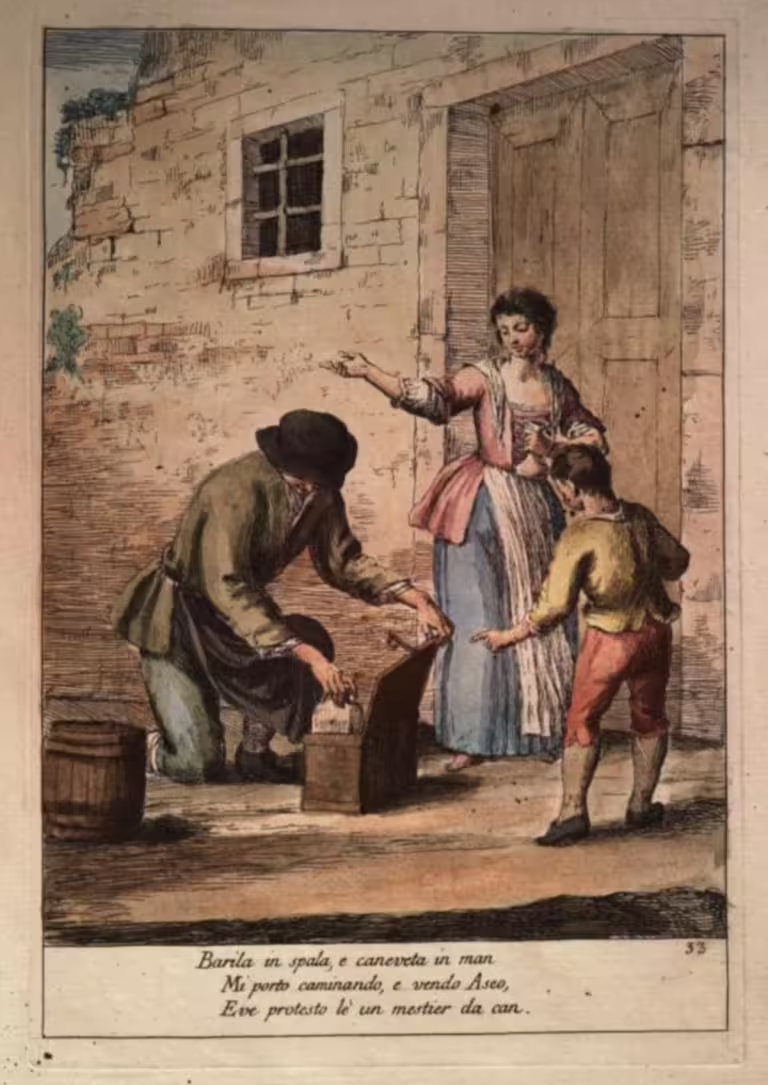
Text
Barila in spala, e caneveta in man Mi porto caminando, e vendo Aseo, E ve protesto lè un mestier da can.
Translation
Barrel on the back, jug in the hand
I bring walking, and sell Vinegar,
And I insist that it is a trade for a dog.
Notes
Vinegar — aseo — was commonly used in food, for conservation, and for sanitary purposes.
A caneveta was a jug or a bottle, for wine or vinegar. The box for the canavete is a salvafiaschi. See Boerio (1829), entry CANEVÈTA.
The reference to dogs meant the same as in English. A mestier da can was hard work and earned poorly. See, for example, ibid., entries FADİGA and VESTIO.
All images
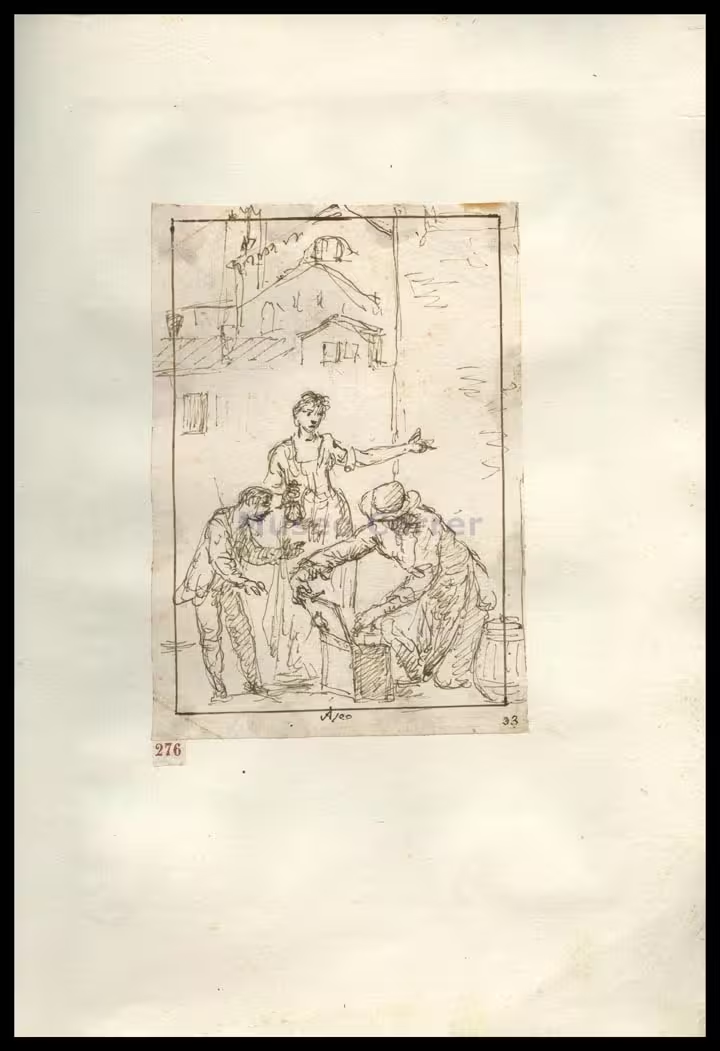
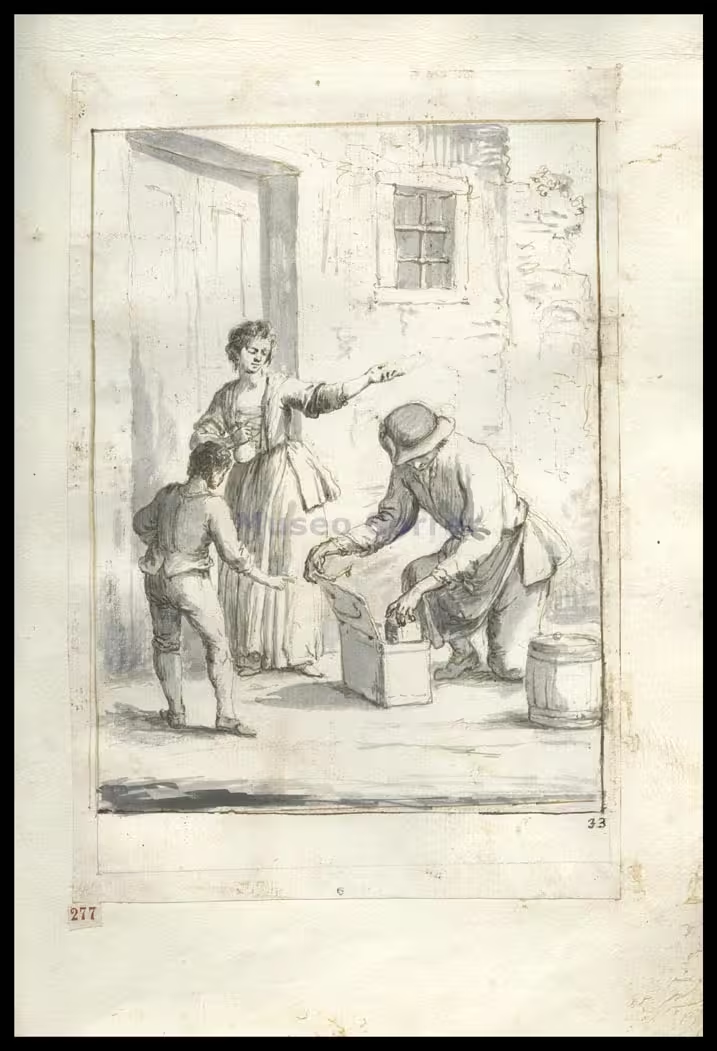
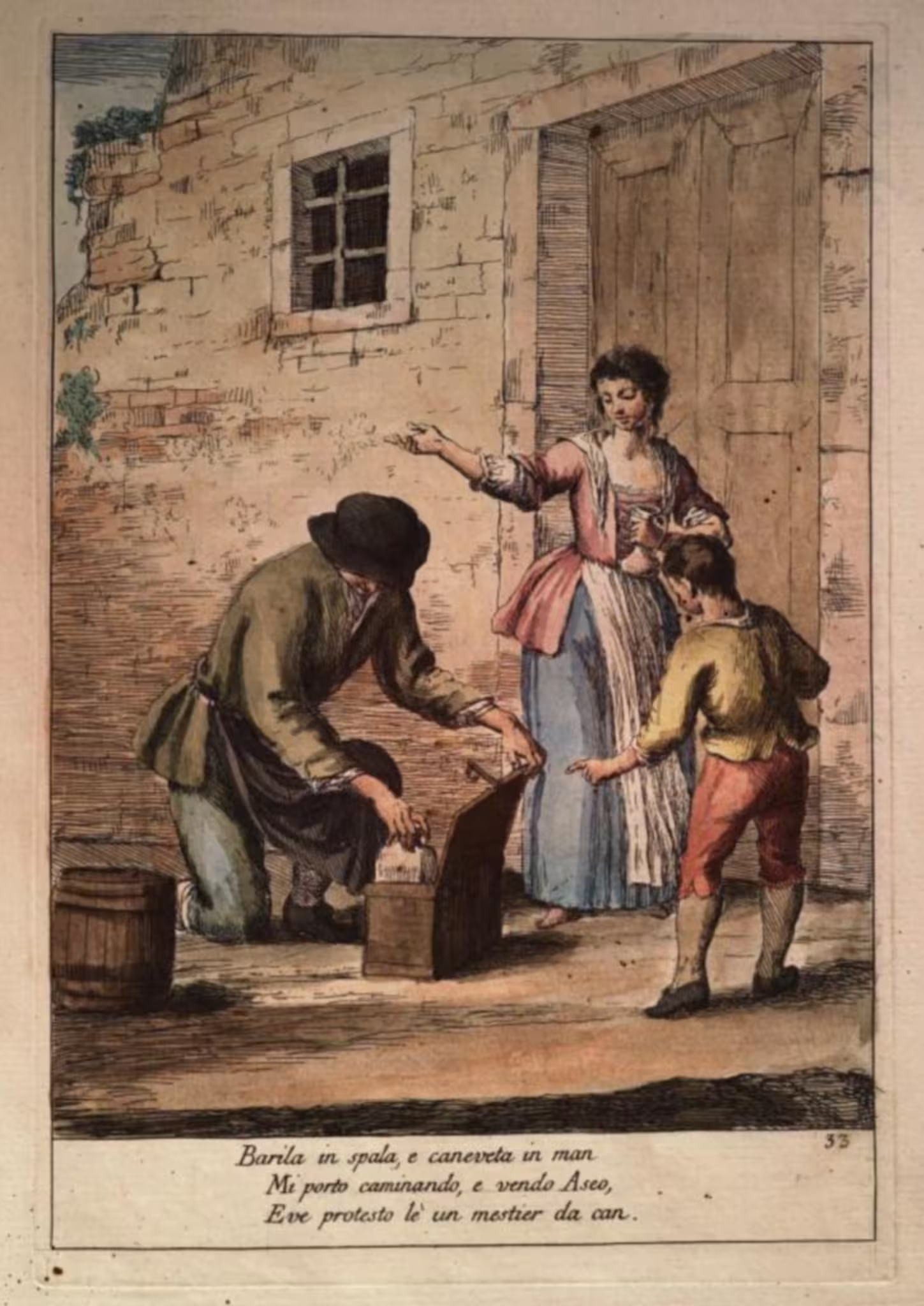
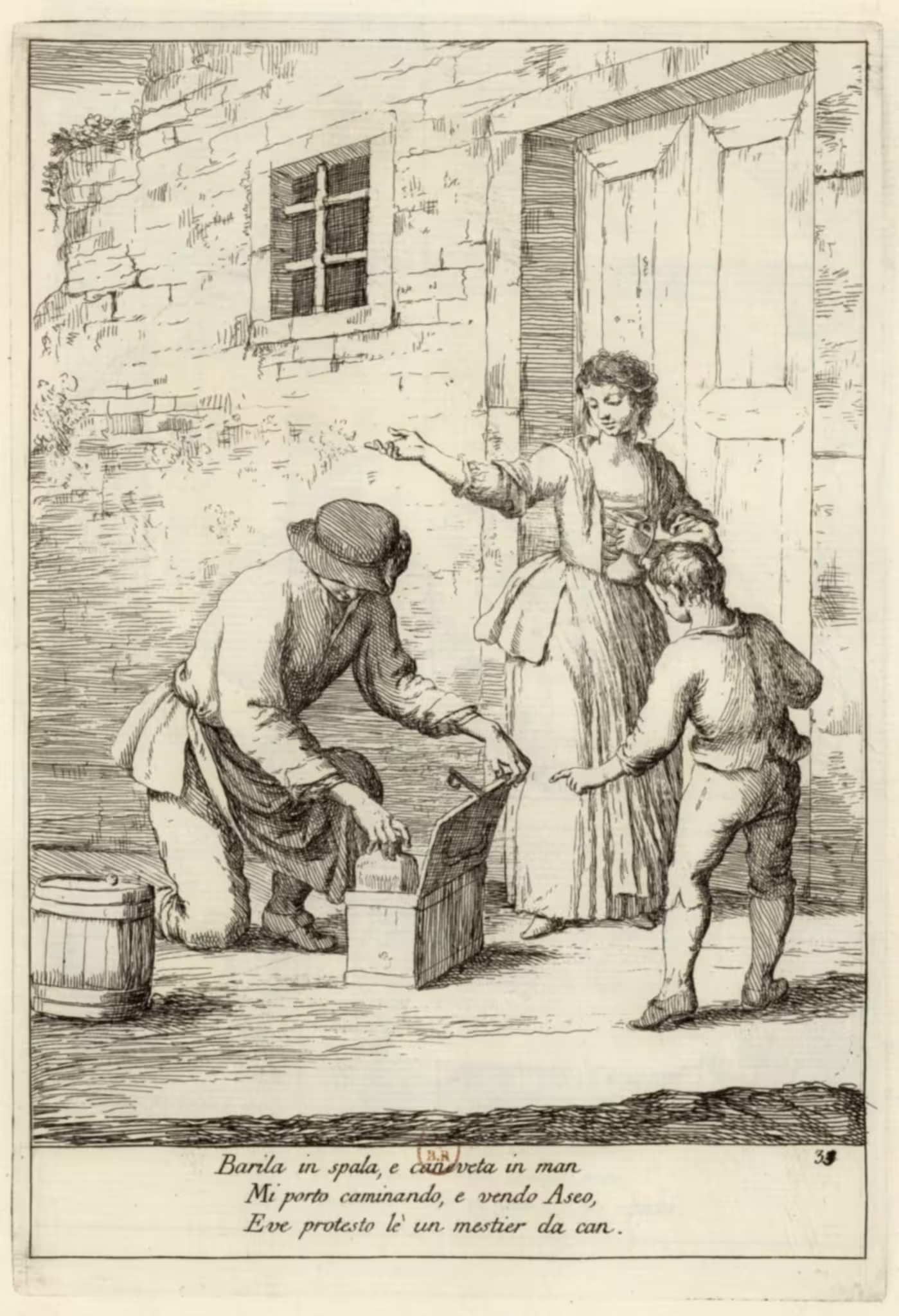

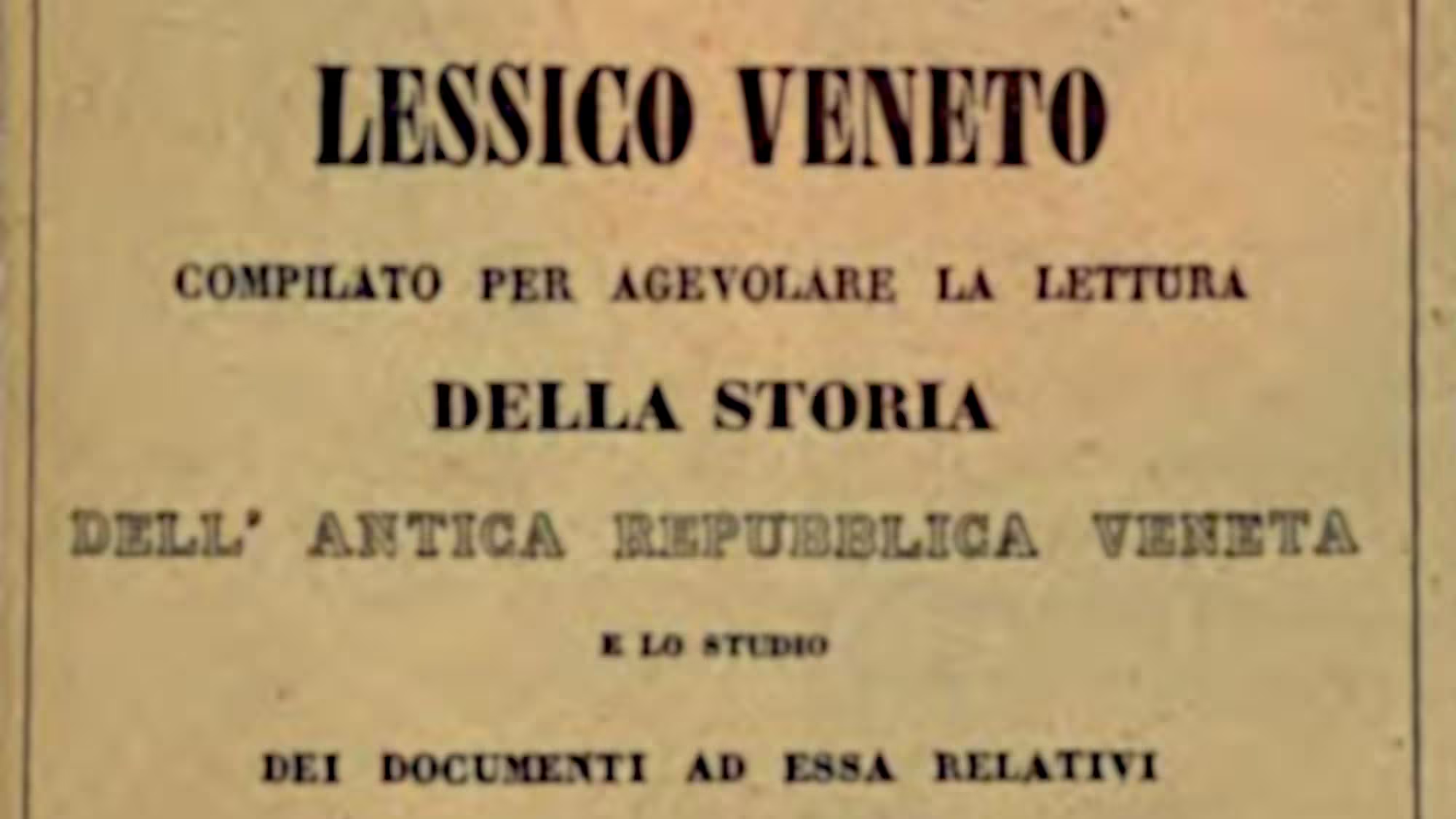
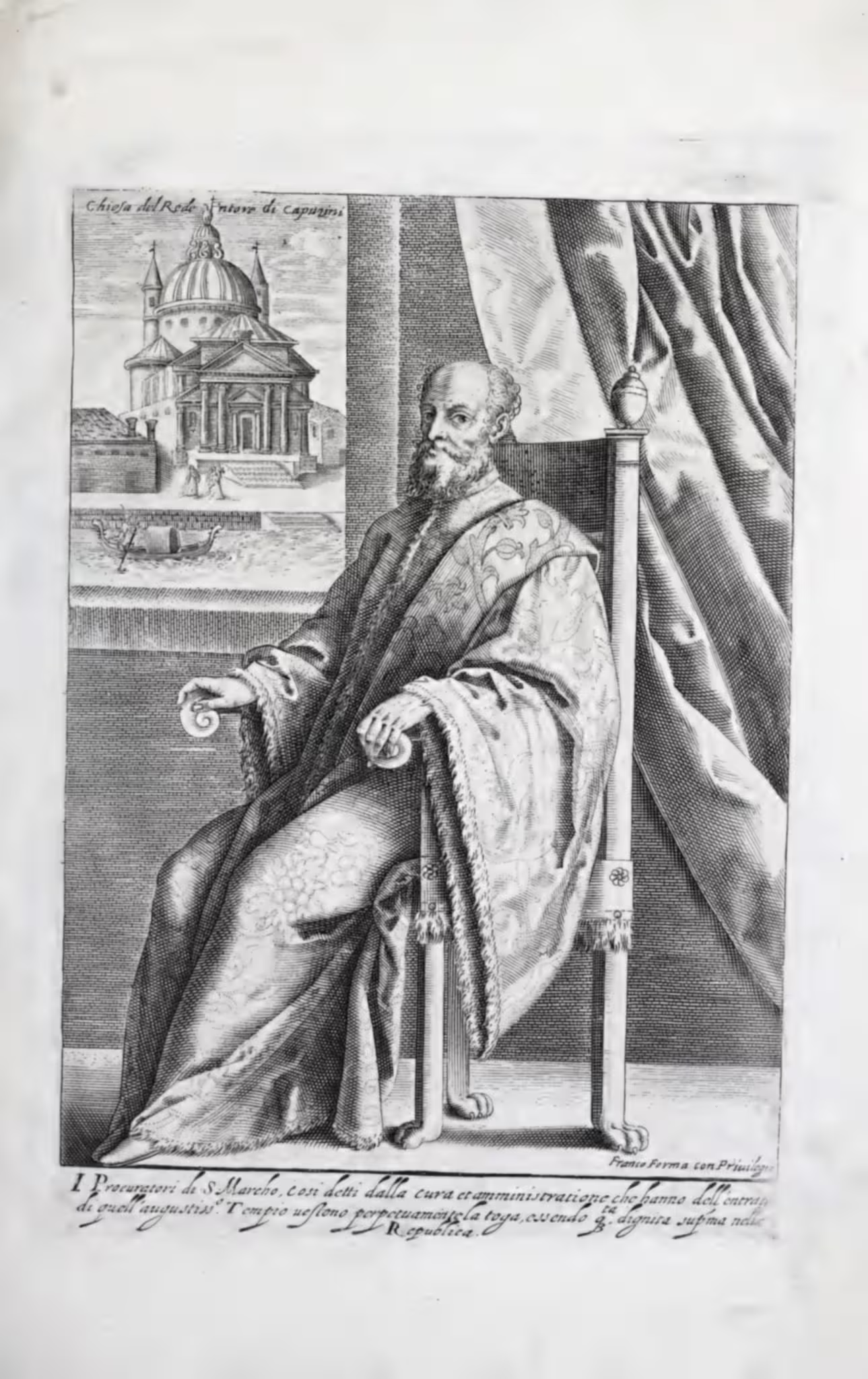
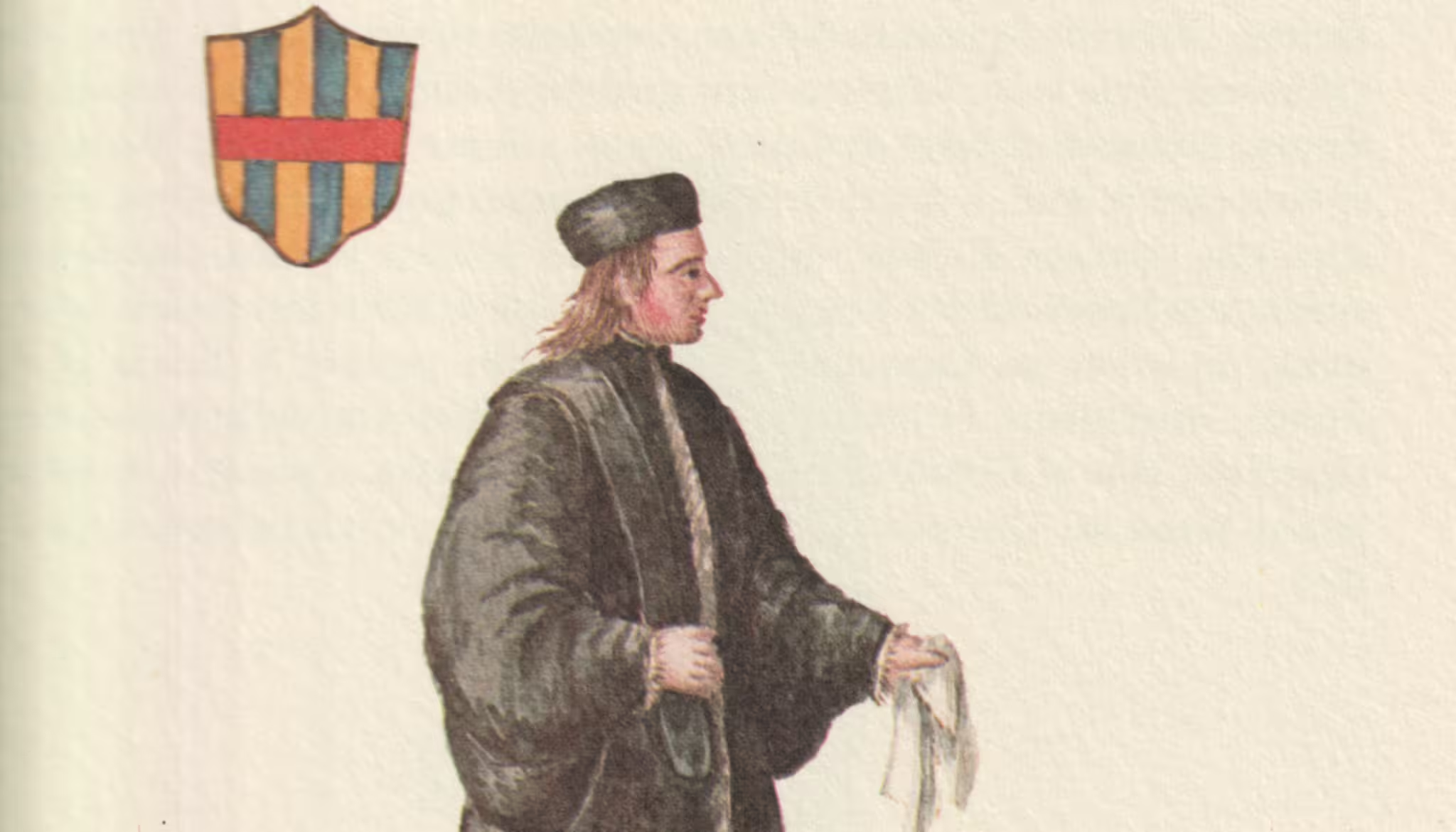
Leave a Reply